#gregory sierra
Explore tagged Tumblr posts
Text



Gregory Sierra
26 notes
·
View notes
Text






12 notes
·
View notes
Text









Director - John Carpenter, Cinematography - Gary B. Kibbe

"A master vampire, able to walk in the sunlight, unstoppable. Unless we stop him."
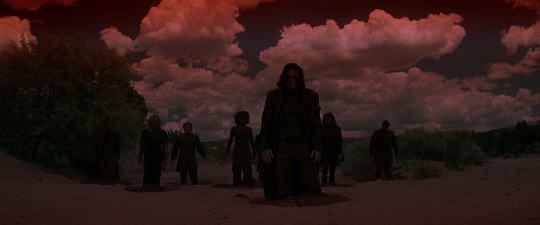
John Carpenter's Vampires (1998)
#scenesandscreens#john carpenter#vampires#James woods#gregory sierra#cary hiroyuki tagawa#Marjean Holden#chad stahelski#Clarke Coleman#David Rowden#Henry Kingi#Thomas Rosales#mark boone junior#maximilian schell#thomas ian griffith#Tim Guinee#sheryl lee#Daniel Baldwin#Gary B. Kibbe
10 notes
·
View notes
Text

r e m e m b e r i n g
Gregory Sierra
25 January 1937 – 4 January 2021
⚘️
[pic: sierra as corbin entek, second skin, ds9]
#remembering#actor#Gregory Sierra#died on this day#star trek#star trek deep space nine#deep space nine#rick berman#michael piller#star trek characters#ds9 character#Corbin Entek#ds9 season 3#deep space nine season 3#ds9 Second Skin#Second Skin#lot: st ds9 season 3 ep 5/26 (ep 51/176)
10 notes
·
View notes
Text
In 1947, a man was pulled from his car and was later found in a grisly condition; his leg had been eaten off. Some speculated this was the work of the Jersey Devil as this happened in the woods in New Jersey. ("Jersey Devil", X-Files, TV)
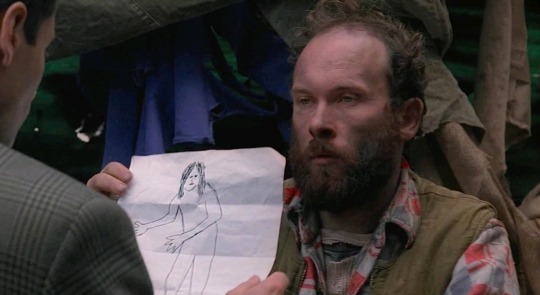
#nerds yearbook#sci fi tv#xfiles#x files#xphile#1947#cryptid#jersey devil#chris carter#joe napolitano#david duchovny#fox mulder#agent fox mulder#gillian anderson#dana scully#agent dana scully#jason gray stanford#fbi#claire stansfield#wayne tippit#gregory sierra#michael macrae#jill teed#tamsin kelsey#andrew airlie#bill dow#hrothgar mathews#jayme knox#scott swanson#sean o'byrne
11 notes
·
View notes
Text

Gregory Sierra on the set of "Barney Miller" (1976)
50 notes
·
View notes
Text
Vampires (1998)
Benvenuti o bentornati sul nostro blog. Dopo aver fatto diversi articoli sull’animazione e la Disney, siamo tornati a parlare di live-action e questa volta l’abbiamo fatto con uno dei registi europei che nell’ultimo periodo si è dimostrato veramente abile. Il film in questione è Inexorable. La storia parla di Marcel, uno scrittore divenuto famoso dopo aver pubblicato il suo primo libro,…
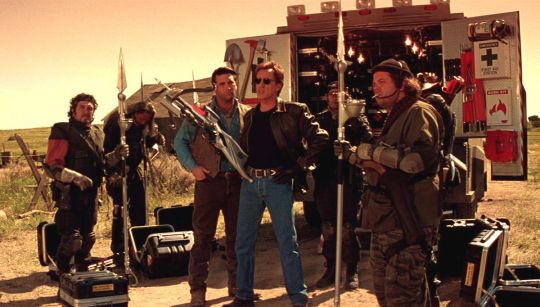
View On WordPress
#action#azione#Cary-Hiroyuki Tagawa#Columbia Pictures#Daniel Baldwin#Don Jakoby#film#Film Office#Gary B. Kibbe#Greg Nicotero#Gregory Sierra#horror#Jack Crow#James Woods#John Carpenter#John Carpenter&039;s Vampires#John Steakley#JVC Entertainment Networks#Largo Entertainment#Mark Boone Junior#Maximilian Schell#movies#Nuovo Messico#Recensione#Recensione film#Robert Kurtzman#Sandy King#Sheryl Lee#Spooky Tooth Productions#Storm King Productions
2 notes
·
View notes
Text

#remembering #GregorySierra #actor #CorbinEntek #deepspacenine #SecondSkin #BarneyMiller #SanfordAndSon #Soap #thetoweringinferno #beneaththeplanetoftheapes #deepcover #vampires #murdershewrote #walkertexasranger #mafia #bloodmoney #vic #theothersideofthewind #ds930 #startrek58
#remembering#gregory sierra#actor#corbinentek#startrek#deep space nine#secondskin#barney miller#sanford and son#soap#the towering inferno#beneath the planet of the apes#deepcover#vampires#murder she wrote#walkertexasranger#mafia#bloodmoney#vic#theothersideofthewind
0 notes
Text
Murder She Wrote guest stars in 'A Nest of Vipers:"
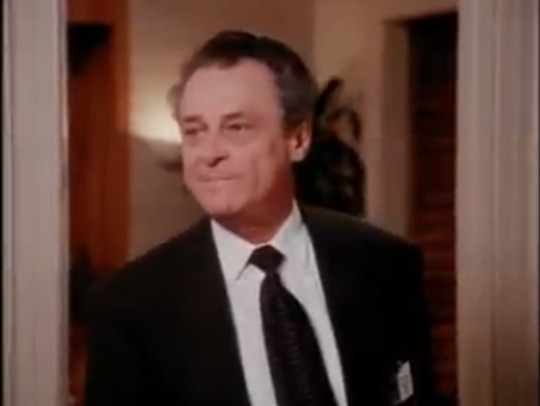
Jerry Hardin returns- second of three appearances. Best known for The X-Files, was also in Cujo, Sliders, Caroline in the City, Ally McBeal, Dr Quinn Medicine Woman, Murphy Brown, ST:TNG, ST:VOY, Mad About You, Quantum Leap, Matlock, The Golden Girls, Dallas, The Twilight Zone (1980s), Ironside, Gunsmoke and After M*A*S*H. His Sam Clemmens in TNG was very fun.
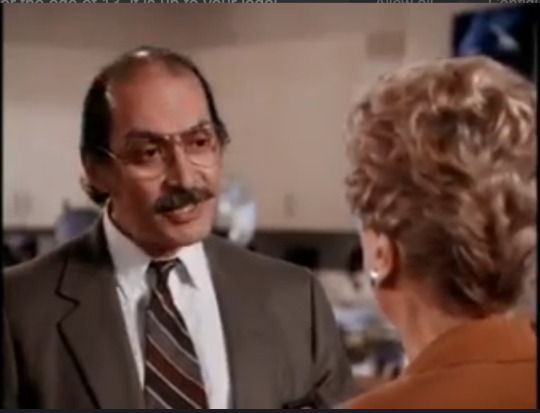
Gregory Sierra returns (4th of 6 appearances) - a character actor of 130 credits including Star Trek: DS9, It Takes a Thief, The Flying Nun, The Mod Squad, Beneath the Planet of the Apes, Alias Smith & Jones, Mission: Impossible, Ironside, All in the Family, Kung Fu, Gunsmoke, Barney Miller, Sanford & Son, Lou Grant, Quincy ME, Hill Street Blues, Hart to Hart, Miami Vice, Simon & Simon, Cagney & Lacey, Growing Pains, MacGyver, Fresh Prince of Bel-Air, Ray Bradbury Theatre, Golden Palace, The X-Files, Dr Quinn Medicine Woman
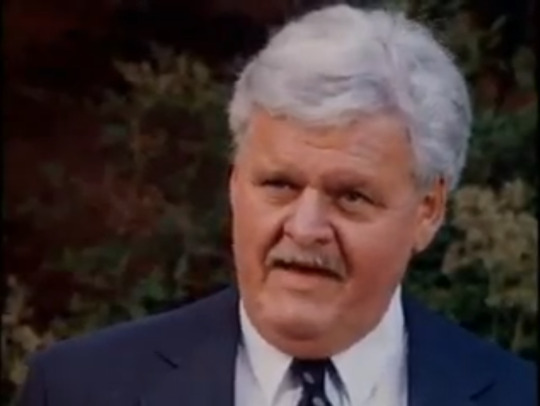
Dion Anderson - character actor of 70 credits. Known for The X-Files, ST:DS9, Matlock, The Golden Girls, Murphy Brown, Days of our Lives, Family Law, Sabrina the Teenage Witch, Diagnosis Murder, Will & Grace, Columbo: A Trace of Murder, Chicago Hope
11.01 Episode aired Sep 25, 1994
#jerry hardin#murder she wrote guest stars#murder she wrote#dion anderson#gregory sierra#The X-Files#Sliders#Caroline in the City#Ally McBeal#Dr Quinn Medicine Woman#Murphy Brown#ST:TNG#ST:VOY#Mad About You#Quantum Leap#Matlock#The Golden Girls#The Twilight Zone (1980s)#Ironside#Gunsmoke#After M*A*S*H#It Takes a Thief#Beneath the Planet of the Apes#Alias Smith & Jones#Mission: Impossible#All in the Family#Kung Fu#Barney Miller#Sanford & Son#Lou Grant
0 notes
Text
The Towering Inferno| Episode 443
New Post has been published on https://esonetwork.com/towering-inferno-episode-443/
The Towering Inferno| Episode 443

Mark Maddux joins Jim for a look at Irwin Allen’s classic1974 thriller “The Towering Inferno,” starring Steve McQueen, Paul Newman, William Holden, Faye Dunaway, Fred Astaire, Susan Blakely, Richard Chamberlain, Jennifer Jones, O.J. Simpson, Robert Vaughn, Susan Flannery, Norman Burton, Don Gordon, Gregory Sierra and a host of rising stars. The nation’s tallest building is being dedicated when fire breaks out on one of the upper floors leaving several people trapped. It’s a race against time in this blockbuster released just before Christmas. Find out more on this episode of MONSTER ATTACK!, The Podcast Dedicated To Old Monster Movies.
#1974 Thriller#Don Gordon#ESO Network#Faye Dunaway#Fred Astaire#geek podcast#Gregory Sierra#Irwin Allen#Jennifer Jones#Jim Adams#Monster Attack!#nerd podcast#Norman Burton#O.J. Simpson#Paul Newman#Richard Chamberlain#Robert Vaughn#Steve McQueen#Susan Blakely#Susan Flannery#The ESO Network#The Towering Inforno#William Holden
0 notes
Text



Face of the 1970s: Gregory Sierra.
17 notes
·
View notes
Text






Kissing leads to necking and necking leads to more necking and more necking leads to screaming and rolling around! No no no no!
#soap#soapedit#jessica tate#el puerco#katherine helmond#gregory sierra#s4#s4e11#that's but NOT butt i know we're all thinking it!
9 notes
·
View notes
Text
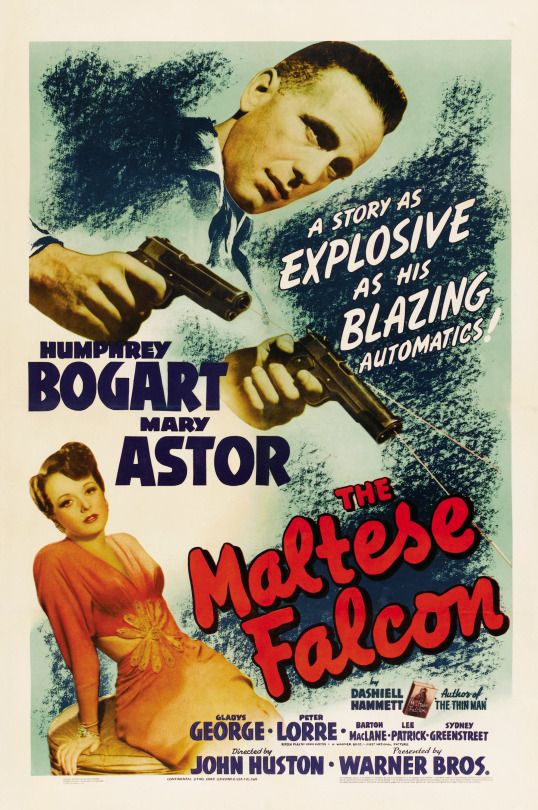
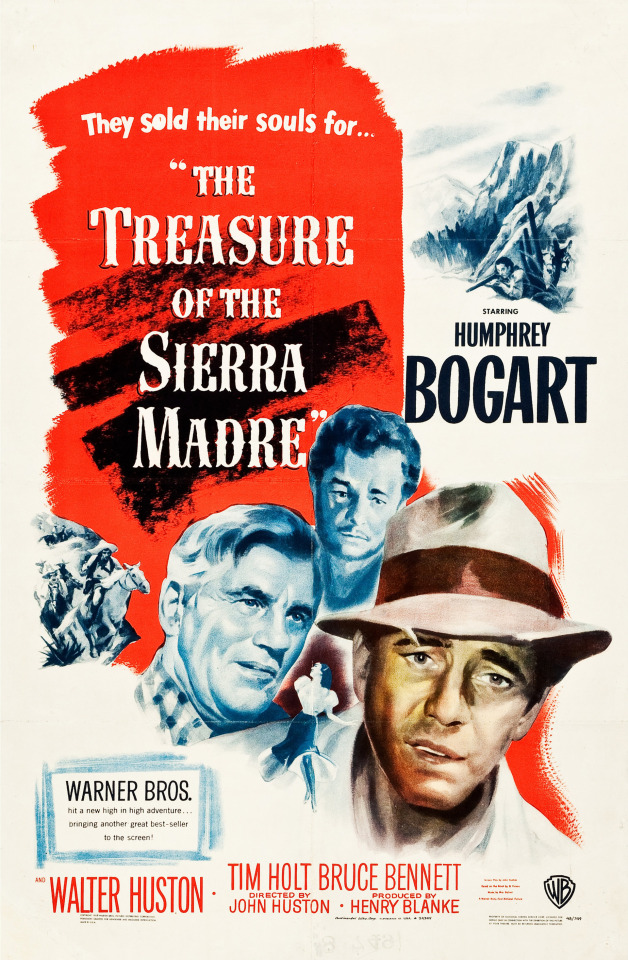

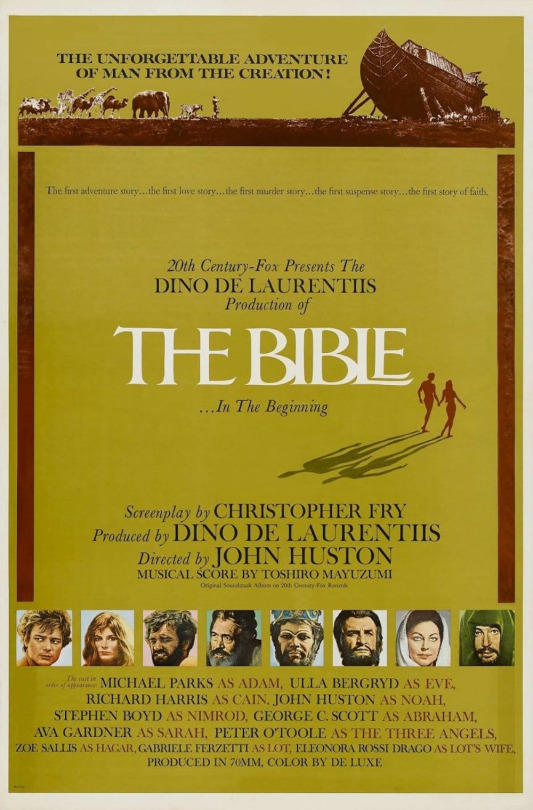
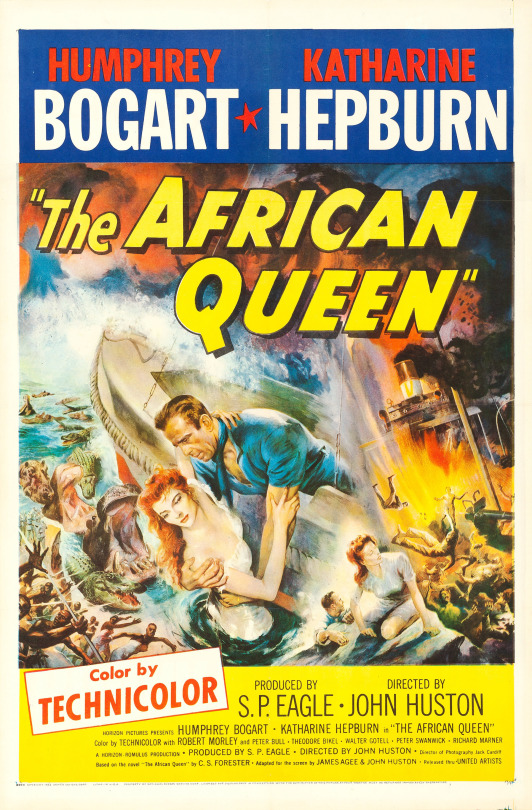
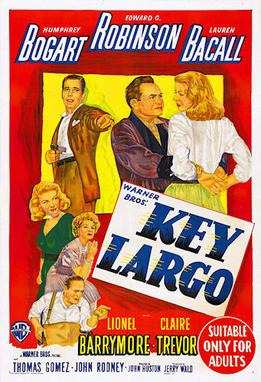
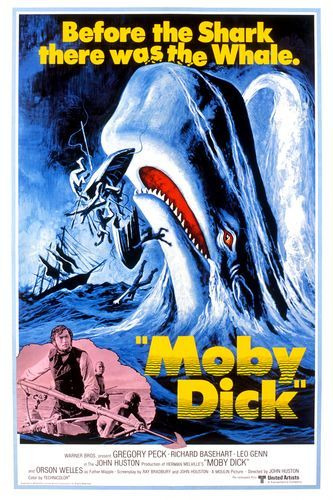
#poll#polls#my polls#Movies#John Huston#the maltese falcon#The Treasure of the Sierra Madre#the man who would be king#the bible: in the beginning#the african queen#Key Largo#Moby Dick#Humphrey Bogart#Gregory Peck#Sean Connery#Michael Caine
7 notes
·
View notes
Text
WORRY LESS - SIERRA CARSON FT. GREGORY PORTER
EGC. EAC. (X2)
FAC. EGC. EGB. EAC
FAC
I DONT WANNA WAIT FOR YOU
EGC
EVEN
EGB
IF I TRIED TO SETTLE SCORES WITH YOU
FAC
TALK TO ME IF YOU WORRY LESS
EGC. EGB
FAC
I SETTLE SCORES WITHIN ME
EAC
I LIED TO LIVE UP YOUR PAST
EGC
YOU’RE THE ONLY ONE WHO COULD TAKE
GBD
MUCH MORE THAN I CAN LET IT OUT
FAC
YOU. WILL. NEVER. TAKE.
MY BREATH AWAY
EGC
FAC
ITS A CRIME TO LOSE A FEELING
EGC
ONE ROUGH SEPTEMBER NIGHT
EGB
I DONT REMEMBER WHAT YOU DID THAT TIME
*CHORUS (FAC - I SETTLE SCORES WITHIN ME TO MY BREATH AWAY)
EGB
WORRY LESS TO SEE YOUR MOTHER THERE
EAC
CRYING HARDER THAN SHE USED TO BEAR
FAC
GUILT TRIPPING IN MY BONES
EAC
YOU. DONT WANT TO CARE
EGB
FAC
THE STRANGEST DAYS
EGC
OCCURRED TO ME
EGB
FAR AWAY
EAC
ITS IN MY DESTINY
FAC
WORRY LESS
EGC
I’LL GIVE YOU MORE
EGB
BUT PROMISE ME, YOUR LIFE WILL NEVER EVER BE THE
FAC
SAME, WORRY LESS,
EGC
I’LL GIVE YOU MORE, MY MOMMA SAID DONT WORRY LESS
EGB
I’LL DO IT IF YOU
EAC
PROMISE ME THAT I CAN GIVE YOU MORE
FAC
EGB
IF YOU WORRY LESS,
EAC
I CAN GIVE YOU MORE
FAC
0 notes
Note
could you do a web about loving someone who doesn’t love you back
certainly!


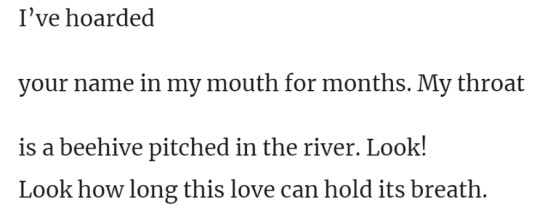

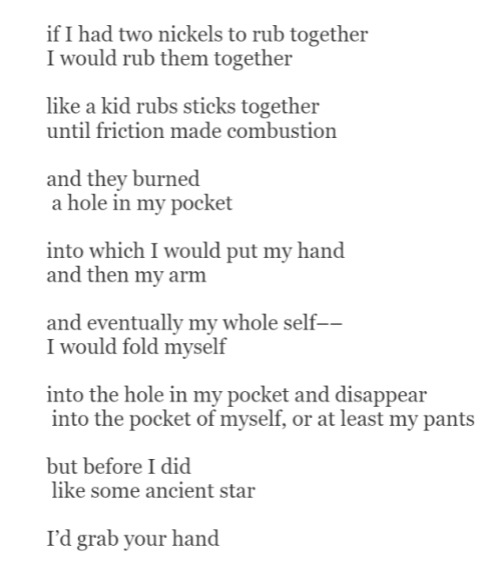

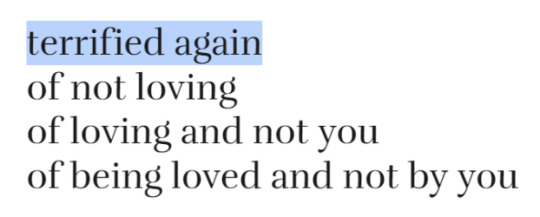

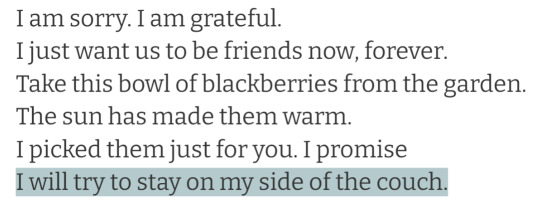
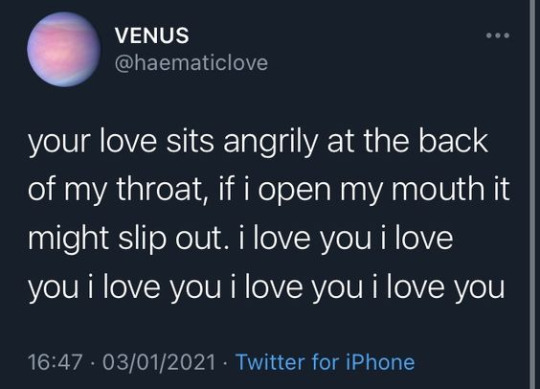

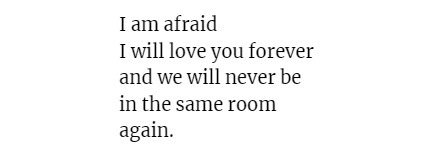

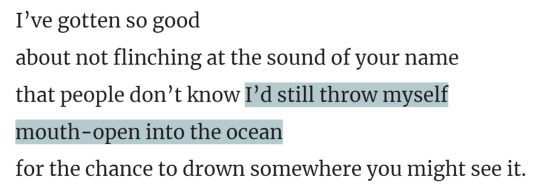

I Wish That You Loved Me.
I Swear Somewhere This Works, Trista Mateer | For the Best, Gregory and the Hawk | Today Means Amen, Sierra DeMulder | from the unsent project | poem I wrote sitting across the table from you, Kevin Varrone | The Garden of Eden, Ernest Hemmingway | Cascando, Samuel Beckett | Hungry Thread of Nerves, Fatima Aamer Bilal | Catalog of Unabashed Gratitude, Ross Gay | @/haematiclove on twitter | Lullabies, Lang Leav | In a Dream You Saw a Way To Survive, Clementine von Radics | Don’t You Dare (Make Me Fall in Love With You), Kaden MacKay | Honeybee: Baggage, Trista Mateer | If This Were My Book The Ending Would Be So Different, Natalia Vela
[text transcription in alt text]
#poetry#web weaving#prose#literature#web weaving poetry#web weave#parallels#poem#compilation#on love#unrequited love#I queue you would forget forget-me-nots#༺✿ web weaves by basil ✿༻#i know ive used some of these before but i think the prompt justifies it!#Trista Mateer#Sierra DeMulder#Kevin Varrone#Ernest Hemmingway#Samuel Beckett#Ross Gay#Lang Leav#clementine von radics#Natalia Vela
2K notes
·
View notes
